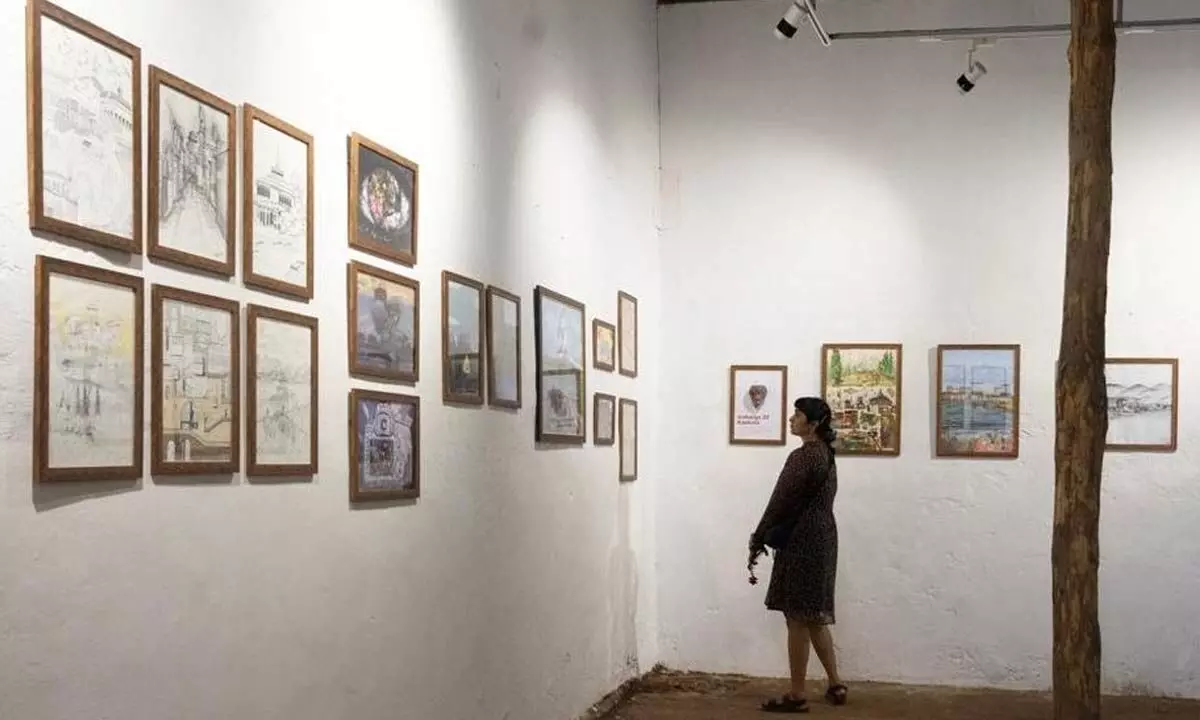Art creation on Nepal women at Kochi Biennale attracts many

Art creation on Nepal women at Kochi Biennale attracts many
An installation, prepared by Nepal Picture Library titled 'Women's Public Life', has now become the cynosure of all eyes at the ongoing 5th edition of the Kochi Biennale
An installation, prepared by Nepal Picture Library titled 'Women's Public Life', has now become the cynosure of all eyes at the ongoing 5th edition of the Kochi Biennale.
The creation portrays a historical glance at how the call for presence in the public sphere has contributed to women's empowerment in Nepal.
The attempt was to set up an archive wholly for women, for which the Nepal Picture Library indulged in research and amassed private collections, including notes, photographs, and publications.
"Being visible in the public sphere means being seen and valued in history as well.
The journey of Nepali women from the boundaries of home to the open courtyard of public life is a shift from the state of being hidden
and unimportant to that of lasting memory," said K.C. Raja and Nayantara Gurung Kakshapati, curators of the exhibition.
The lives of different Nepali women, who were willing to enter the public sphere on their own, can be seen in a layered form.
Past events, in which women became part of political fights, addressed collectives, opened up paths to public life through education, thus becoming personal figures of leadership and dismantling social regulatory frameworks -- the unique exhibition enables the viewers to experience all these contributing factors.
To gain education, the Nepali women had to march defiantly against the notion that girls' education is an unnecessary step that would lead to the destruction of values and threaten the social order.
A few pictures from the past can be seen in the exhibition, which captures the huge leap that women and girls could make in their lives through studies and knowledge acquisition.
Also, how the schools allowed women to experience collectiveness can be seen in the exhibition.

